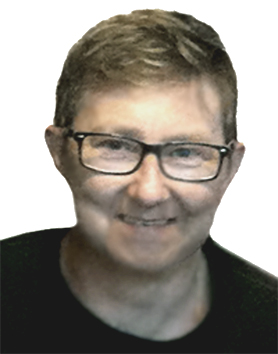Louise Merzeau facts for kids
Louise Merzeau (born Sylvie Merzeau, 1963–2017) was a French university professor and photographer. She taught about communication at Paris Nanterre University. She also helped lead Wikimedia France for a few years.
Contents
About Louise Merzeau
Louise Merzeau went to a special school called the École normale supérieure de lettres et sciences humaines. She became a qualified teacher of modern literature in 1985. In 1993, she earned her PhD with a thesis about how text, photos, and documents are connected.
Later, in 2011, she did more research on how memory works in the age of the internet. By 2016, she became a full university professor at Paris Nanterre. She also helped manage a research lab there called Dicen-IDF.
Her Research and Ideas
Louise Merzeau's work was inspired by Régis Debray's idea of mediology. This is about how culture and technology influence each other. She mostly studied how technology, rules, and society affect memory.
She came up with the idea of a hypersphere. This was to describe the social and technical systems that grew with the internet. She also helped edit a journal called Les cahiers de médiologie for many years.
Merzeau also looked at the idea of "traces." These are like the digital footprints we leave online. She explored how our online identity is formed, and how it's more than just a collection of data. Her work focused on how people act online and what it means to have a digital culture.
Understanding Online Behavior
In one talk, "The User's Intelligence," she showed how people play many roles online. They can be users, consumers, or even creators of content.
She also wrote about "copy and paste." Merzeau suggested that this action shouldn't always be seen as cheating or stealing. She believed that copying could be a way to learn and understand new things. She thought that teaching people how to copy smartly could help them gain knowledge. This idea was linked to her support for "common goods." This means things that everyone should be able to use and share freely.
She was part of a group called Savoirscom1. This group works to protect users' rights against rules that might limit access to information. She even started a special course at Paris Nanterre University about "digital common goods."
Working with Wikipedia
In March 2015, Louise Merzeau helped publish a book about Wikipedia. She worked on this book with Lionel Barbe and Valérie Schafer.
Later Work and Involvement
Her later research focused on "editorialisation." This idea looks at how traces and information are created and shared online. It sees writing as a group effort that happens within technical systems. She worked on this with researchers like Marcello Vitali-Rosati and Gérard Wormser.
Louise Merzeau was also involved in web archiving. This is the process of saving websites for the future. She helped with the scientific side of legal web deposits at INA from 2010 until she passed away.
Besides her academic work, she was also a digital and creative photography artist. In 2015, she joined the scientific council of Wikimedia France. In May 2017, she became a member of their board of trustees.
Louise Merzeau passed away on July 15, 2017.


